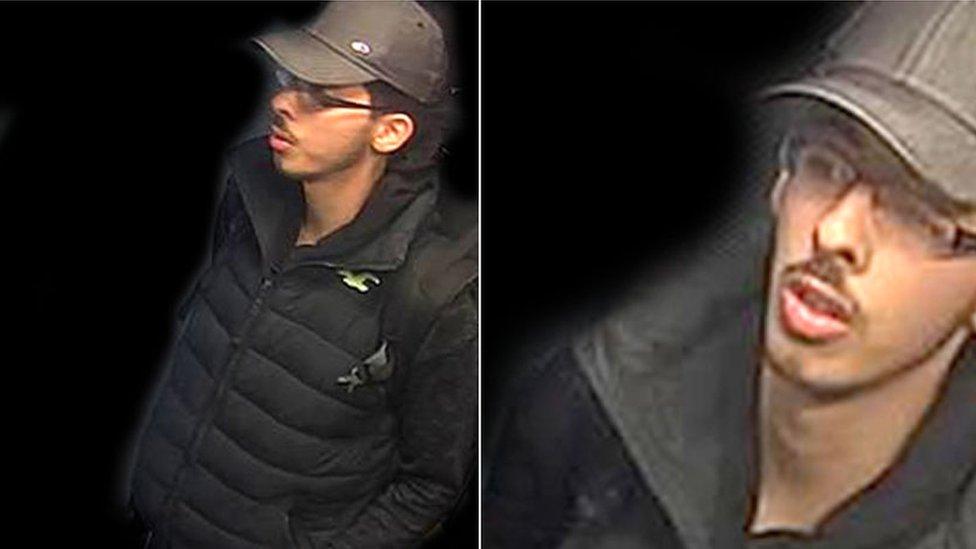Manchester attack: Bomber’s mosque has 'a lot to learn'
- Published
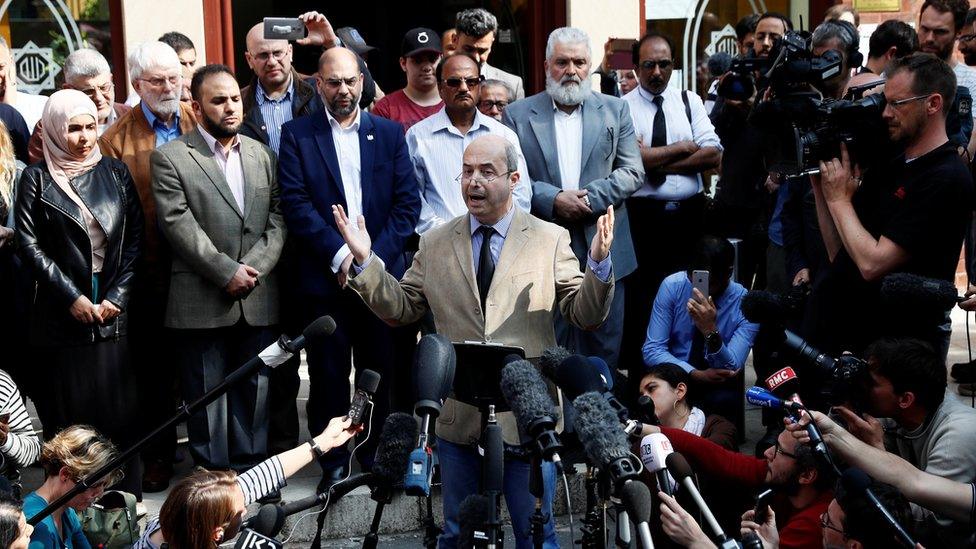
Fawzi Haffar, trustee of the Didsbury Mosque, addressed the press in the wake of the attack
A mosque attended by the Manchester bomber says it needs to be "more proactive" in encouraging young people away from extremist ideologies.
Didsbury Mosque was identified as one of the mosques attended by bomber Salman Abedi and his family.
Fawzi Haffar, a trustee of the mosque, told BBC Panorama: "I have to be truthful. We have a lot to learn, [we] have to be more conscious".
He said the mosque needed "proper policies" in place to deter extremism.
Abedi blew himself up, killing 22 people as they were leaving a concert at Manchester Arena last week.
Mr Haffar told BBC Panorama: "When we did find out that he attended this mosque we had to really ask some of our employees whether they remembered him. And some of them say they did."
Several sources told Panorama that Didsbury Mosque in south Manchester was his regular place of worship. His elder brother Ismail taught at the mosque, and before he left for Libya in 2011, his father would offer the call to prayer, or adhan.
Bomber Salman Abedi was remembered by some as a loner who would sometimes read books in the corner.
Despite wide reports that Abedi was reported by Didsbury Mosque, the mosque confirmed to Panorama that he was not.
But Mr Haffar said that one of the mosque's imams did report three other suspected extremists two years ago.
"The mosque is open to everybody, and we have hundreds of attendees every day. We are inundated with youth who come to the mosque."
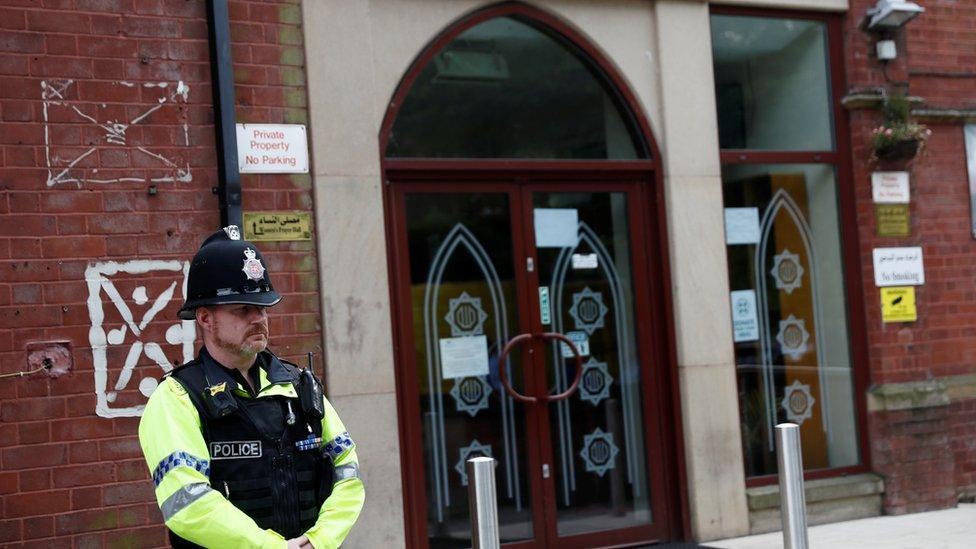
But he admitted the mosque had to work much harder to recognise signs of extremism.
"I think we have to ask our imams to be more proactive to encourage the youth to move away from such evil stories, evil people."
Others in the community did report Abedi. A local youth worker told Panorama that while Abedi was at college in his teens, teachers and pupils were so worried they called an anti-terror hotline a number of times.
According to the source, Abedi had been saying it was worth dying for a cause and suicide bombing was OK.
Question Time row over 'mosque' leaflet
Mr Haffar said that the mosque encourages people to leave their politics outside.
He said: "It is our duty to report people who we think are going to be a menace - who will do perhaps terrorist acts - whatever creed, whatever colour, whatever religion they are.
"Whether it's my son, whether it's my daughter it is my responsibility to do that and we have to accept that".
But last week, a BBC Question Time audience member claimed that he was handed an anti-Western leaflet at Didsbury Mosque.
The mosque said it had not printed the leaflet, but admitted that unauthorised leaflets were sometimes left by people who are not affiliated with them.
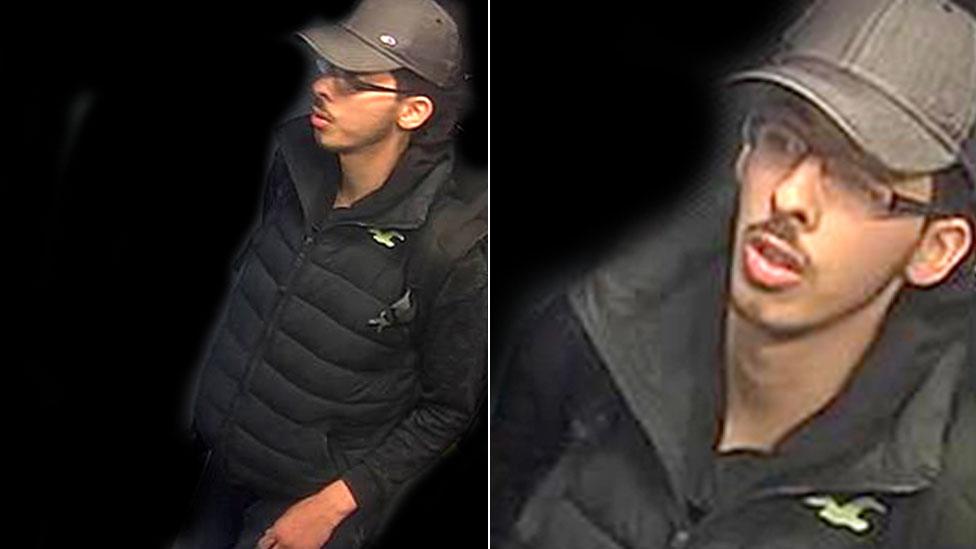
Mr Haffar told Panorama the mosque needed to assess its practices.
"We have to have proper policies. We have to avoid mistakes."
Watch Tina Daheley's report for Panorama - Manchester Attack: Terror at the Arena on Monday 29th May, 8:30pm on BBC1 or afterwards on iPlayer.
- Published28 May 2017
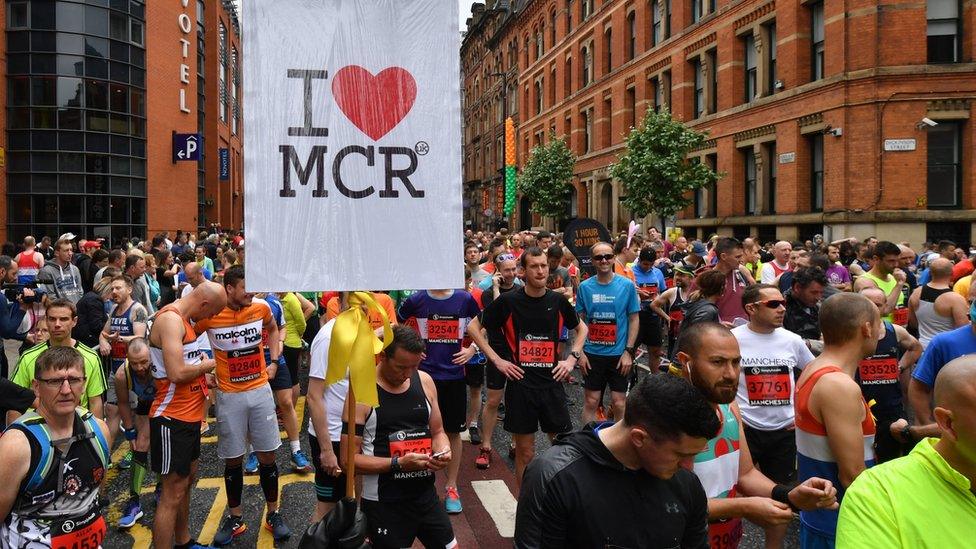
- Published28 May 2017
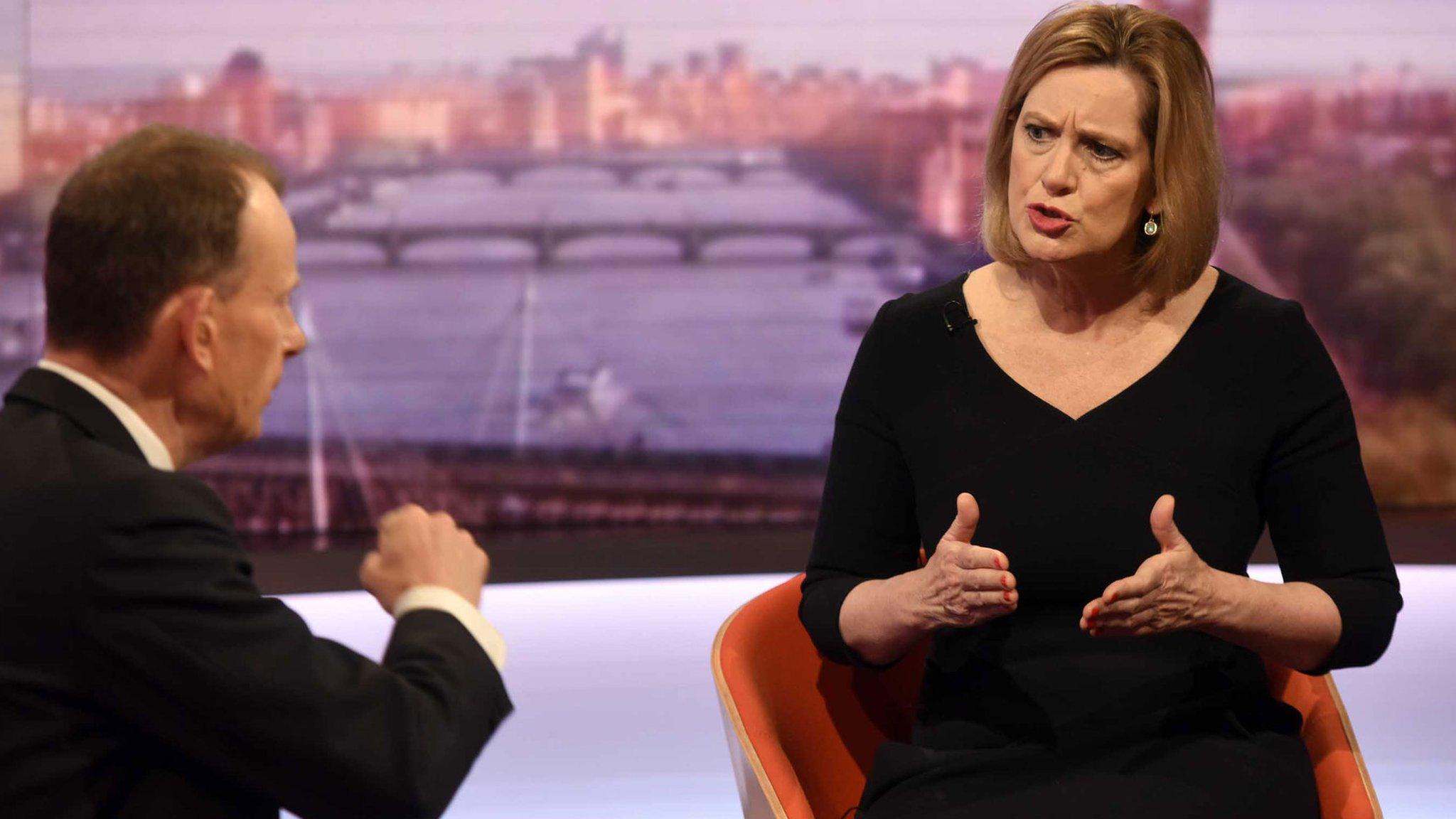
- Published28 May 2017
